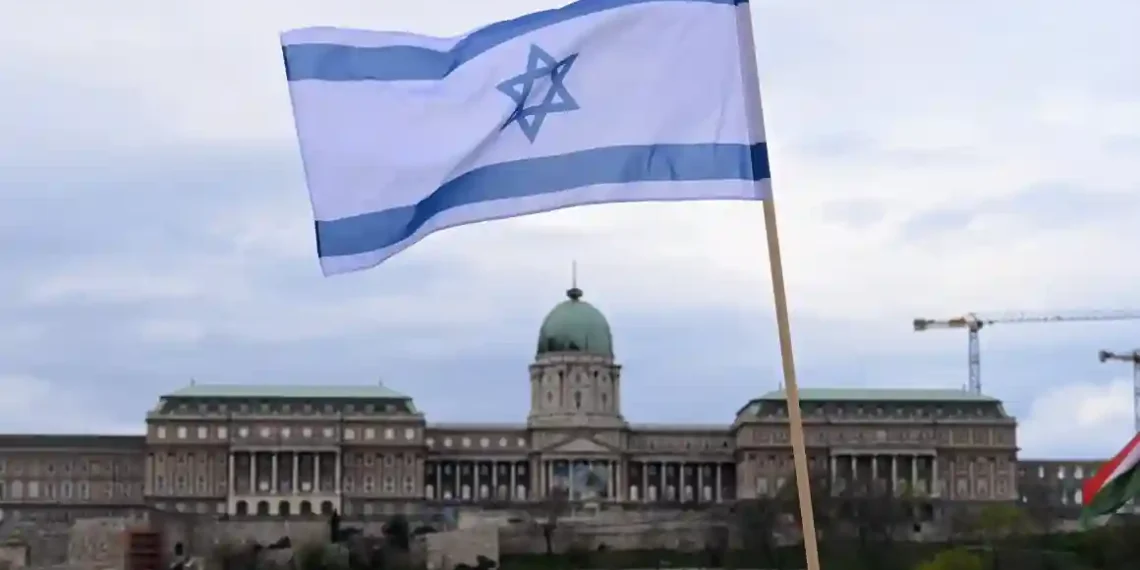Netanyahu Seeks Refuge in Hungary Amid ICC Arrest Warrant
Israeli Prime Minister Benjamin Netanyahu, once a globe-trotting statesman celebrated for securing alliances and showcasing Israel’s technological prowess, now faces starkly different circumstances. With an international arrest warrant hanging over him, his travel options have become severely limited. Yet, this week, he finds sanctuary in Budapest, Hungary—one of the few places where he can visit without fear of extradition.
In November, the International Criminal Court (ICC) issued an arrest warrant for Netanyahu, citing alleged war crimes in Gaza, including the use of starvation as a method of warfare. Since then, he has avoided countries under ICC jurisdiction. That changes with his four-day visit to Hungary, where Prime Minister Viktor Orbán—one of his strongest international allies—has assured him safe passage.
Orbán was quick to denounce the ICC’s decision, calling it “brazen, cynical, and completely unacceptable.” His government has made it clear that Hungary will not enforce the arrest warrant, despite being a signatory to the Rome Statute, which established the ICC in 2002.
Netanyahu is not one to take risks when it comes to his security. His recent trip to the U.S. saw his flight take a circuitous route, sticking close to U.S. air bases in case of emergency. Now, in Budapest, his schedule includes visits to the city’s Holocaust Museum and key political meetings. However, his itinerary is notably open-ended toward the latter part of the trip, coinciding with Shabbat—a move some speculate could allow for discreet diplomatic discussions.
With much of the world turning away from Netanyahu due to the ICC charges, Hungary offers a rare opportunity for face-to-face meetings and strategic maneuvering.
Beyond shielding Netanyahu from international prosecution, the visit serves another purpose—it allows both leaders to reinforce their shared political narratives.
In Israel, Netanyahu faces growing domestic unrest. Protests against his far-right government are intensifying, fueled by opposition to the renewed offensive in Gaza and the government’s failure to secure the release of hostages. His alignment with Orbán, known for eroding judicial independence and silencing media opposition, further alienates Israelis who fear democratic backsliding.
For Orbán, too, the timing is crucial. With Hungary’s political climate shifting, opposition leader Péter Magyar is gaining momentum ahead of next year’s elections. Hosting Netanyahu allows Orbán to flex his diplomatic muscle, reinforcing Hungary’s defiance of Western liberal norms. His recent engagements with Chinese President Xi Jinping and Russian President Vladimir Putin signal a strategy of aligning with controversial figures to bolster his own image.
Netanyahu’s visit to Budapest is more than just a diplomatic trip—it’s a statement. By standing shoulder to shoulder with Orbán, he underscores his rejection of the ICC’s authority and aligns himself with leaders who challenge democratic norms. While the visit provides temporary refuge, it also highlights the increasingly constrained international space Netanyahu now operates within.
As the world watches, one thing is clear: Netanyahu’s once-expansive diplomatic reach has narrowed, and his alliances now rest on shared defiance rather than shared values.
This article was rewritten by JournosNews.com based on verified reporting from trusted sources. The content has been independently reviewed, fact-checked, and edited for accuracy, neutrality, tone, and global readability in accordance with Google News and AdSense standards.
All opinions, quotes, or statements from contributors, experts, or sourced organizations do not necessarily reflect the views of JournosNews.com. JournosNews.com maintains full editorial independence from any external funders, sponsors, or organizations.
Stay informed with JournosNews.com — your trusted source for verified global reporting and in-depth analysis. Follow us on Google News, BlueSky, and X for real-time updates.














